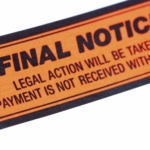Secrets The Debt Collector Hopes You Never Find Out

Stop Debt Collector Harassment Now
If you have gotten behind in your debts, and you know the debt collector by name, the calls you get every night at dinner can be exhausting.
Massachusetts Debt Collection Rules Prohibit
- Calling you at home more than twice for each debt in any seven-day period;
- Calling you at work if you have requested that they not call. Written requests are valid until you write to the collector removing the restriction;
- Calling you without identifying both the name of the creditor and the name of the person calling;
- Contacting you directly, if you have told the creditor or collection agency you are represented by an attorney;
- Falsely threaten to take legal action that the creditor does not take or reasonably intend to take;
- Mailing to you any printed or written materials that reveal or imply that you owe a debt (for example, by using a postcard to contact you or using a descriptive return address);
- Soliciting post-dated checks from you;
- Calling you at times other than between 8:00 a.m. and 9:00 p.m;
- Refusing to allow you to inspect any document on which the creditor relies to prove that you owe the debt being collected, e.g., a credit card application, account statement, promissory note, ledger, account card, or similar record in the creditor’s possession, which reflects the date and amount of payments, credits and charges related to the debt.
Failure to follow these rules is an “unfair or deceptive act or practice” under the Massachusetts Attorney General’s Debt Collection Regulations, 940 CMR 7.08 and may give you the right to sue.
Whether you have just started getting calls, have been taken to court or had your wages garnished, a bankruptcy filing can provide a fresh start. It’s not too late.


